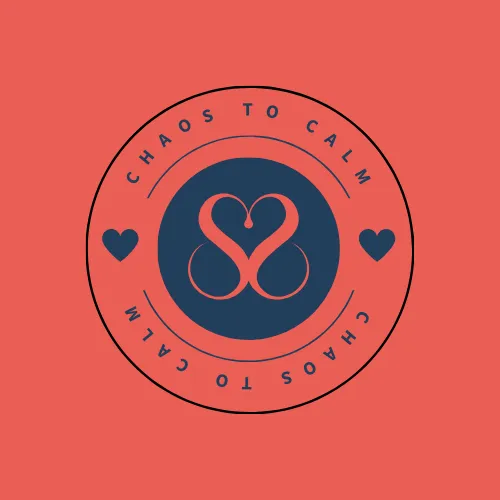Parenting through BPD isn’t easy, but you don’t have to do it alone.
Chaos to Calm is your space for real talk, practical tools, and community support, designed for mums of young adults with emotional dysregulation, BPD or EUPD.
Parenting through BPD isn’t easy, but you don’t have to do it alone.
Chaos to Calm is your space for real talk, practical tools, and community support, designed for mums of young adults with emotional dysregulation, BPD or EUPD.
Hi,
I’m Sami, mum, coach, and your calm in the chaos.
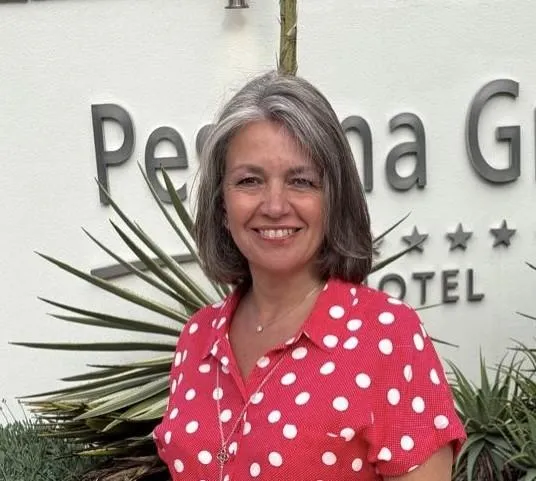
I’ve walked through the storm. As a mum supporting a young adult with emotional dysregulation, I know what it feels like to be scared, stuck, and utterly exhausted. But I also know what it’s like to find clarity, hope, and support when everything feels too much.
Chaos to Calm was born from my lived experience and from the fierce love I have for my daughter. It's here to help you navigate the emotional whirlwind of supporting your child, and to care for yourself along the way. I’ve walked through the storm...
If you're navigating the chaos of parenting a young adult with Borderline Personality Disorder (Emotionally Unstable Personality Disorder) or any emotional dysregulation, you're in the right place.
Whether you're desperate for answers, craving community, or simply need someone who gets it, you don’t have to do this alone anymore.
This space was built for you.
Calm Toolkit
Resources
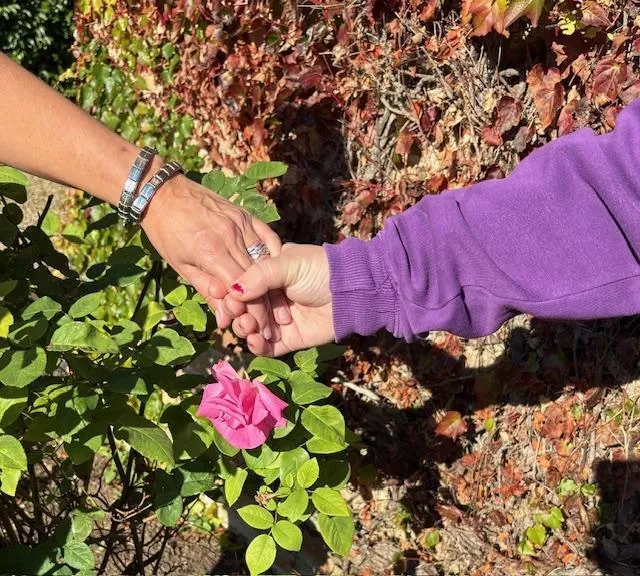
Your go-to space for practical, gentle support. The Calm Toolkit is where you’ll find helpful downloads, grounding exercises, and self-guided tools – all designed to help you (and your family) navigate emotional overwhelm.
It’s not just about finding calm in the moment, but building long-term emotional resilience too. You’ll find bite-sized knowledge on things like DBT skills, self-soothing techniques, and mindset shifts – with more being added regularly. Think of it as your growing library of calm, clarity, and confidence.
Blog
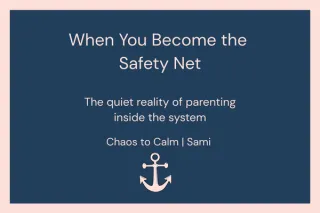
When You Become the Safety Net: Parenting Through Mental Health Crisis in Hospital
What happens when parents become the safety net in mental health crisis care? A real-life reflection on informal admission, A&E and parental hypervigilance. ...more
Navigating the System (NHS, Crisis Services & Private Help) ,Emotional Dysregulation Being a Mum of Daughter with BPD &Psychiatric Units
February 23, 2026•5 min read
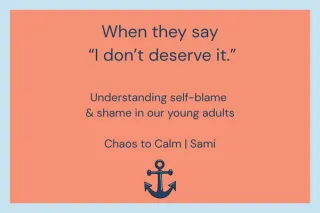
When They Say “I Don’t Deserve It”: Understanding Self-Blame in Young Adults
When young adults say they don’t deserve food, care or kindness, it’s often rooted in shame and trauma. A guide for parents navigating self-blame and self-neglect. ...more
Emotional Dysregulation ,Knowledge is Power Being a Mum of Daughter with BPD &Psychiatric Units
February 16, 2026•4 min read
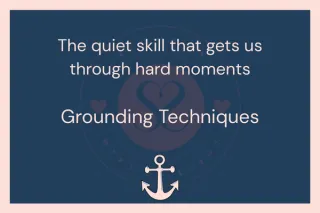
Grounding Techniques for Parents: Calm Support in Real Life Moments
Grounding techniques can help parents and young people manage emotional overwhelm, anxiety, pain and dysregulation. A real-life guide for families navigating hard moments. ...more
Emotional Tools and Techniques ,Emotional Dysregulation Knowledge is Power Resources and Learning &Being a Mum of Daughter with BPD
February 09, 2026•3 min read
The Calm Hub, Support for Every Storm
🔵 Chaos to Calm App
Your calm in the chaos, right in your pocket.
A growing toolkit of distraction ideas, grounding techniques and support strategies created for those moments when it all feels too much.
🔵 The Anchor Box (Subscription)
The Anchor Box is your go-to when emotions run high — for both you and your loved one.
It’s packed with calming tools, sensory items, and grounding prompts to help you pause, reset, and hold steady together.
Because anchoring isn’t just about stopping , it’s about staying connected to what matters most.
🔵 Chaos to Calm Blog
Raw, relatable stories from a mum living through the chaos — and the calm.
Explore practical tools, emotional reflections, and small steps that make a big difference.
Because sometimes, hearing “me too” is the most powerful thing.
FAQs: Your Calm, Your Way
Are you a psychologist or a therapist?
No, I’m a mum who’s walked this path. What I offer is practical support, lived experience, and gentle guidance. This isn’t therapy, it’s everyday tools, emotional reassurance, and a community that gets it.
Do I have to join a group or talk to anyone?
Not at all. Many of my resources are self-guided. You can explore at your own pace, privately. When you’re ready for connection, the Facebook community is there, but only when you want to dip in.
Is this just for mums of kids with BPD?
Not only. While my heart lies with supporting parents of young adults navigating emotional dysregulation or BPD, the tools I offer grounding, emotional regulation, gentle resets are helpful for anyone feeling overwhelmed.
What is the Calm Hub?
The Calm Hub is your go-to online space filled with free tools, articles, calming techniques, and inspiration. Think of it like a virtual hug when life gets a bit too much.

